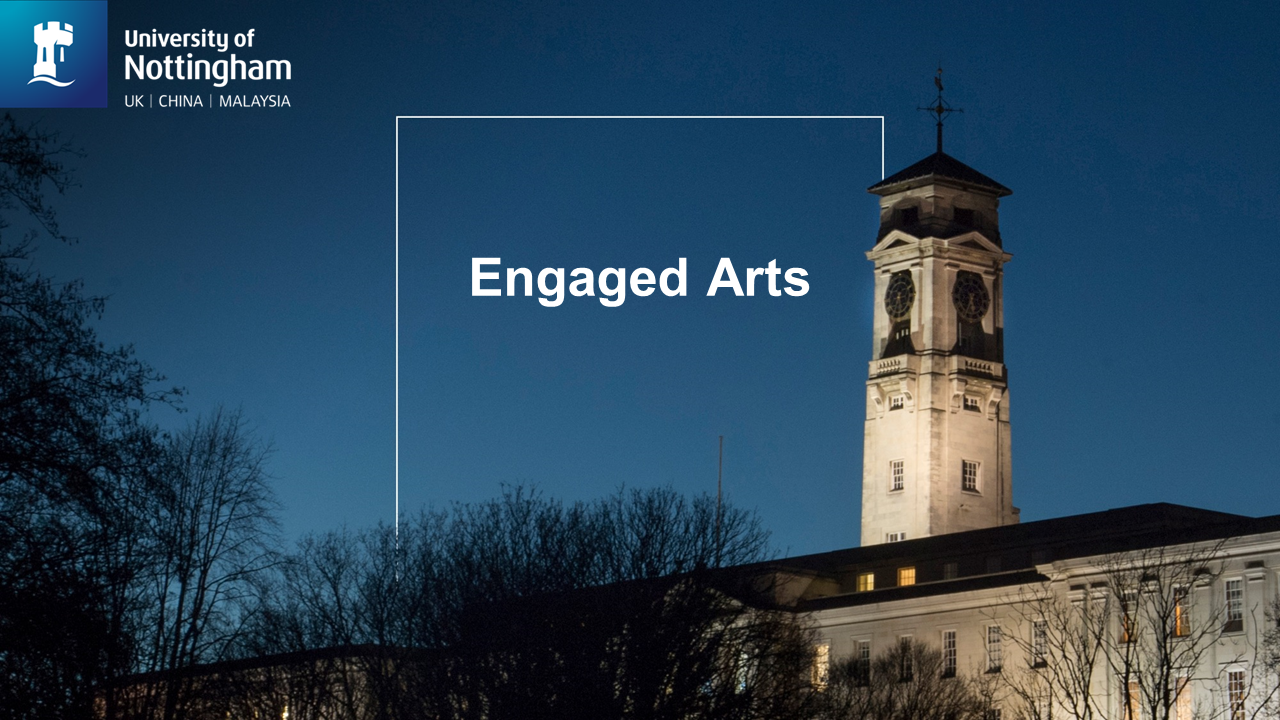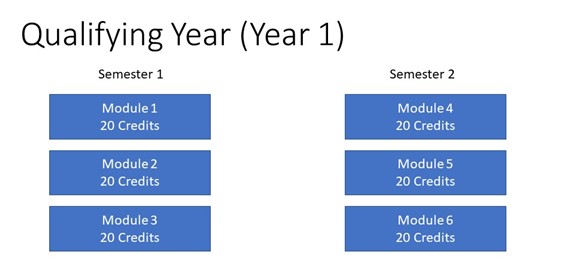
January 26, 2024, by Laura Nicholson
Arts Faculty Takeover: Arts Reimagined
Throughout the 2023–4 academic year, we are running a new feature on the Learning Technology (LT) blog: a faculty takeover month! Each month, we will feature posts from different faculty members at the university. Every Friday, posts will highlight interesting work and ideas related to technology in teaching and learning and showcase unique projects from within the various disciplines across the UoN. In October, we had our Faculty of Science takeover; in November, it was Medicine and Health Sciences; and this month we hear from the Faculty of Arts.
This week, Ross Wilson, Professor of History – Cultures, Languages & Area Studies, writes about the Arts Reimagined project, which involves student co-creation of the degree programmes.
Degree programmes
Over the next few years, the Faculty of Arts is transforming all of their undergraduate degrees as we use the expertise of our staff, the abilities and enthusiasm of our students, and our connections to external partners to build upon the excellent experience we offer in the Faculty. Every degree programme is being redesigned for the benefit of students so that each individual in the Faculty of Arts can use their time with us to develop their knowledge, build meaningful skills and experiences, and then apply this to the challenges and opportunities that exist in our world. To do this, from 2022 to 2025, we will co-create our degree programmes with our students and collaborate across the Faculty and beyond as we realise our project, ‘Arts Reimagined’. This is an ambitious project that has a clear educational aim: to enhance and enrich the student experience in the Faculty of Arts through creating a common framework, shared learning outcomes, and structures, as well as the development of an exciting suite of modules in Engaged Arts.
The Common Framework
The Common Framework in the Faculty of Arts guides how students will learn and experience their degree programme. What students will learn and the knowledge and skills that students develop will be designed by departments for their degree programmes. However, the Common Framework serves to help staff and students see how our degree programmes are designed and delivered. This is the basis of the learning experience in the Faculty of Arts, where innovative, engaged, and accessible education is practiced and coordinated across our seven departments. This has been developed through workshops with staff and students as well as surveys across the Faculty and with our alumni. This information has been crucial for us in realising what is valued in our degree programmes and what we need to do to update and change. Discussing perspectives from staff and students means that we can see our degree programmes differently, as things we share in common, that we all care about. This approach has been widely praised by everyone involved in the process.
Student comments
Some comments from our students who were involved in our workshops and co-design have been:
It’s been one of my most valuable experiences so far, and I will always be grateful to you for that. Working with you has been an absolute privilege.
I just want to say thank you so much for facilitating this work over the summer. It has genuinely been so much fun working with everyone, and you have done such a fantastic job listening to us and given such great advice.
Staff Comments
Comments from staff were equally positive:
Workshop 1 gave us the chance to have a productive discussion about what our degrees are for. There was a lot for us to talk about, and we were in broad agreement about the attributes graduates of our degrees should have.
I think it was a great opportunity to do something we’ve never done before, and what worked well was identifying this unique opportunity at the outset. This opened up the day for some great discussions as to what we do well and what we can do differently.
Creating our common framework allows us all across the faculty, staff, and students alike to share how we think about our degrees and sets in place a way of working for the future where the student voice and experience are key.
Learning Outcomes
All programmes within the Faculty of Arts will have a common set of Learning Outcomes. These will be expressed differently by disciplines and programmes, but these Learning Outcomes are a shared thread that brings our programmes together. This creates a unified objective for all programmes within the Faculty. Our Learning Outcomes identify what we believe are the important parts of learning within an Arts and Humanities degree. These Learning Outcomes are:
- Advocacy for the arts disciplines – we believe that the arts and humanities provide a unique perspective on the world and creates the impetus for change.
- Citizenship and Decolonisation – in our Faculty, we focus on how we understand belonging and how we work towards social justice and equality.
- Communication – within the arts and humanities, our concentration is on how we engage different audiences with ideas and concepts.
- Critical thinking – the arts and humanities provides a means for us to think differently about our world and develop new perspectives.
- Empathy – the focus of our work within the Faculty is people, how people in the past, present, and future have acted, and how we can understand their actions.
- Ethical – we believe that the arts and humanities offers us a means of acting in a way that does not bring harm to others and respects the wellbeing and identities of everyone.
- Group work – collaboration is key within the arts and humanities; we share ideas and approaches to solve problems and to innovate.
- Independence – a degree in the arts and humanities provides a skillset that encourages and supports finding the individual’s voice and perspectives.
- Interdisciplinary – whilst we are seven departments, we are also committed to finding points of connection across disciplines, ideas, and approaches.
- Lifelong learning – a degree in the arts and humanities is the beginning of a wider learning process, where your degree is a means of moving onto the study of new skills and knowledge.
- Reflection – a key aspect of our degree programmes is to provide the tools and the time to consider what has been achieved, what is currently being studied, and what students want to do in the future.
- Research – we know that research changes the lives of individuals, communities, and wider society, and all our degree programmes are focused on ensuring our students are researchers.
- These Learning Outcomes have been developed through conversations with staff and students about what a degree from the Faculty of Arts at the University of Nottingham should provide for students.
Structure
All our programmes within the Faculty of Arts, whether single, joint, or combined honours, are designed to create an even credit balance in each academic year. Every programme requires students to study 120 credits worth of modules, and these modules will be organised so that 60 credits will be taken in autumn and 60 credits will be taken in spring. Modules may be semester-long or year-long; they may be worth 10, 20, or 40 credits, but the work will always be organised to ensure balance across the semesters (see example in Figure 1).
Figure 1 – Qualifying Year 1, Semester 1 and 2
Where module options enable a student to choose an uneven split of 70/50 credits across the two semesters, then a student is permitted to make that decision for themselves. This structure is designed to balance workloads for students and create a shared experience across the student body.
Engaged Arts
All programmes offer the opportunity for students to take a suite of modules in Engaged Arts in the first and second year of their studies. Students can take up to 20 credits of these modules in their first year and 20 credits in their second year. The purpose of these Engaged Arts modules is to offer a platform where students can reflect on their own individual learning, enrich their own learning on their degree programmes, and to apply these ideas to address the problems we face as a global society. Students will be guided through these modules, which will offer a connection to other students and staff from across the faculty and beyond as they study what it means to apply the arts and humanities. These modules can be taken individually but can also be taken together to create a portfolio of work that can guide student decisions on modules and assessments at university, but also on who they want to be and what they want to do after their studies. Within the first year of the degree programme, students will be able to use the Engaged Arts modules to study:
- Academic Skills
- Sustainability and Environment
- Digital Humanities
- Health Humanities
- Digital Skills
- Languages
Within the second year of the programme, students will be able to expand their work on the Engaged Arts modules by taking modules on:
- Technology and Industry
- Equality and Justice
- Health and Wellbeing
- Data and Digital
- Community Engagement
- Employability and Social Enterprise
Within the Faculty of Arts, we know how transformational work can be in our subject areas, and our Engaged Arts modules create a space where students can apply their ideas, engage with others, and use their knowledge to change their own lives and the lives of others across the world.
Author: Ross Wilson
Calling all blog volunteers!
Would you like to promote how technology is being used in your faculty? Maybe you have some students who are also keen to share how technology has enhanced their learning experiences? If you are interested in submitting a blog post about your use of technology for teaching and learning, please do get in touch. Find out how to submit a post, or arrange to have a chat about ideas
No comments yet, fill out a comment to be the first


Leave a Reply